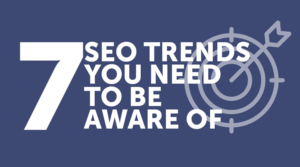Answers by SEO Consultant Nick Stamoulis #3

This is the Third part of my SEO series, I hope you’ve enjoyed the first SEO answers post, and thanks again for submitting your great search engine optimization questions, and I hope you will find some useful SEO tips in the answers.
→ Question #11
Thanks for looking taking questions! My question is on exact match vs. partial match in regards to links. What are your thoughts on partial match recognition, and where do you think partial match link recognition is going to take us?
Are all major search engines implementing this? → By Phil
Answer:
Thanks for stopping by Phil,
I’m not sure I understand your question. First off, I haven’t heard about partial match link recognition before. Do you mean keyword recognition? In my opinion, your best bet is to utilize various anchor text throughout your link building and content marketing. It gives you the opportunity to target more keywords and their variations and keeps you from looking like you are trying to spam the search engines.
→ Question #12
Thanks Hesham, for the opportunity. i always had a question in my mind that ” what the SEO effect after changing homepage title and meta tags of a well established blog?” → By Isha
Hi Isha,
Without knowing more about your blog/industry/competitors, it’s hard for me to tell you what kind of effect those changes would have. Title and Meta tags are still important, especially from a user’s perspective. Your Meta tag is what convinces them to click over to your site and your title tag gives them an idea of what your page is about. Even though it’s not a huge ranking factor, tags and descriptions give you one more place to target relevant keywords where the search engines can find them.
If your blog is well-established, make sure any tweaks you are going to do will actually help. Don’t start targeting different, unrelated keywords because you think it might impact where your blog ranks. In my experience, if you’re site is doing well than don’t start changing things unless you have data that indicates you should.
Thanks for the question.
→ Question #13
How exactly works PAGE RANK?
How much is PAGE RANK important to rank in search engines?
How many backlinks do I need to increase from PR3 to PR4?
Thanks. → By Erik Emanuelli
Answer:
First off, I believe that site owners shouldn’t put so much stock in PageRank. Back when it was first introduced it was a major factor in Google’s algorithm. While it still is a ranking factor, it is only one of hundreds (over 200 signals actually) that Google uses today. It’s been years since I checked out my own site’s PageRank and I never bother checking on a client’s unless they specifically ask for it. I think it’s more important to focus on other things: are your visitors increasing, are they spending more time on your site, is your conversion rate improving—measurements of that nature.
There is no “magic” number of links that will make your site move from a PR3 to a PR4, just like no specific number of links is going to get you to the top of the SERPs. There is no “trick” to SEO! Google says “In general, webmasters can improve the rank of their sites by increasing the number of high-quality sites that link to their pages.” There isn’t really a right or wrong amount.
Thanks for the question
→ Question #14
My SEO question for Nick is:
Building backlinks with misspelled keywords or typos in the anchor text can get your page penalized by Google? (I’m talking about a good amount of backlinks, not a small number that may be considered natural by Google)
Thanks! → By Erwin Konig
Answer:
Hi Erwin, thanks for taking the time to leave a question.
As I mentioned before, I am a strictly white hat SEO practitioner. As such, I would never recommend intentionally incorporating misspelled keywords into the content on your site or anywhere else for that matter. Google understands that misspellings happen when people are searching for something (that’s why they ask “did you mean…” above the SERP) and is pretty good at determining what someone actually meant to say.
I don’t know if you’d get penalized for doing it intentionally because it is not something I’ve ever done or would ever recommend a client do. Based on my experience, you’re better off sticking with the correct spelling of keywords even if the misspelled version has a high search volume. Just from a user’s perspective, do you really want to do business with a site that spells it “morgage” (110,000 monthly searches!) if you looking to take out a mortgage on your home?
Thanks, Nick.
→ Question #15
Hello,
What is the fastest way of adding a site to Google Searching Index?. I submitted the site through google webmasters tools and created a bot and uploaded it to the root of the site. It is now over 5 days and still not indexed!… → By Anas
Answer:
Hi Anas,
My advice to you is to be patient. I’ve seen it take anywhere from a day to three weeks for a site to be indexed. It sounds like you went about it the right way, so I’d wait a little longer before resubmitting it through Google Webmaster Tools.
Thanks for the question, Nick
→ Question #16
I have questions about SEO and glad you are interested in answering them. What are the different techniques? What are the effects/benefits of DoFollow and NoFollow list in SEO deeds? and finally what do you do to have good SEO? Hope you would response.
Thanks! → By Vhien
Hi Vhien,
In my experience, DoFollow links do get a little more weight, but NoFollow links are often still recognized and can still drive targeted visitors through to your site. I think it’s important to have a good mix of both DoFollow and NoFollow links because it keeps your link portfolio looking natural and diversified. As I mentioned before, you don’t want to give the search engines any reason to think you are trying to game the system.
NoFollow links can still drive traffic, which in my opinion means they are still valuable. You don’t want to not get that link just because it’s NoFollow when you can use it to
increase your traffic and potentially convert a visitor.
For more information on DoFollow and NoFollow links here are some videos from Matt Cutts you should check out.
Thanks for stopping by, Nick
→ Question #17
Here goes my questions.
- Is meta data on a website still important on Google? Why/Why not?
- Is Pagerank affects the rankings of websites and blogs on Google?
- What are one way links and how do SE respond to them? → By Allen Cerezo
Answer:
Hi Allen,
1. “Google does not use the keywords meta tag in our web search.” Direct from Matt Cutts himself. I still think Meta data is very important from a user’s perspective, however. Think about it, the meta description is the only chance you have to interact with someone before they decide which link in the SERP to click on. Your description has to convince them to choose your site over the rest. And Google highlights the keywords in Meta descriptions that match the user’s query, so it helps attract attention.
Bing also uses Meta data to some extent, so it still has its place. Bing even says, “Take advantage of all legitimate opportunities to score keyword credit, even when the payoff is relatively low.”
Keep in mind that Meta data is just one component of the overall on-site SEO process. Best practice dictates that you optimize your Meta data, H1 and H2 tags, your URL structure, build an internal linking system, focus on your overall navigation, optimize content and so forth. Don’t get so hung up on one factor!
2. Like I mentioned before, PageRank should not be your biggest concern as a site owner. Yes, it is a ranking factor (one of 200) but it isn’t the all-powerful factor it once was the directly relates to how well your site performs. I think it is much more important to focus on brand building than just what your PageRank is.
3. One-way links (aka inbound links) are links that point from one site to another. Think of them like a one-way street, traffic can only go one way down it. The more good, quality inbound links a site has the better its trust factor with the search engines.
Thanks for the question, Nick
→ Question #18
Here’s my SEO question. On the SEOMoz ranking, what is considered a good rank and what is the highest rank on their scale. → By Ileane
Answer:
Hi Ileane,
Would you believe I just decided to give the SEOmoz tool a try? I haven’t had too much time to play around with it just yet so I don’t know the ins and out of their system but I’ve heard really good things. Based on their MozRank page, it looks like 10 is the highest rank on their scale. I assume a good rank would be higher than a 7, but that’s just my guess. You could always reach out to SEOmoz for more information.
Thanks for stopping by, Nick
→ Question #19
Hi Hesham, this is great, thanks!
my question is about using youtube links in the posts – does it make them stronger? → By Ravit
Answer:
Hi Ravit, thanks for the question.
Do you mean embedding YouTube videos into blog posts or putting links in YouTube video descriptions? Personally, I think both are a good idea. By writing up a quick recap blog post and putting the embedded video in the post you are giving your video more exposure. Readers of your blog might not check out your YouTube channel, but they’ll probably watch a video directly from your blog.
And I think it’s a good idea to put a link in the YouTube video description for a few reasons. It’s a great way to get a good inbound link from a good source and it might drive a little bit of traffic through to your site.
I hope that answers your questions, Nick
→ Question #20
I have the following question…
Is there real difference whether you gain only some dofollow links or they can be nofollow as well? There are some opinions that nofollow links to your site can even hurt your positions and ranks. It is true? → By Fred
Answer:
Hi Fred,
I’ve never seen NoFollow links negatively impact a site’s rank, but in my opinion it’s best to have a blended approach. Like I mentioned before, you never want to put all your eggs in one basket. If your link portfolio is relying too heavily on one type of link you’re vulnerable to losing your entire link portfolio in one fell swoop.
Thanks for stopping by, Nick
→ Question #21
My question is; How do I get a do-follow link when I put in a video clip in Youtube? → By Lennart
Answer:
Hi Lennart,
I’ve never looked into putting a DoFollow link into the video description of a video on YouTube, but it is a good idea to have that link in there regardless. I think the link in your profile is DoFollow, but I wouldn’t worry too much about how many DoFollow vs. NoFollow links you have. The link is going to provide you value regardless.
Thanks for the question, Nick
→ Question #22
Quick question, do you need a 301 re-direct tag within the coding of your site, if you have only ever had one URL? → By Michael
Answer:
Hi Michael, thanks for stopping by.
You only need a 301 redirect if you are actually redirecting one page to another. Let’s say your website has 5 pages, A B C D E. You decided to delete page C but don’t want to lose all the links it has. You can do a 301 redirect so now all the links that were pointing to page C are now pointing towards page D. Unless you have deleted pages or moved to a completely new domain, you don’t need to do a 301 redirect.
Best, Nick
→ Question #23
I’m using the all-in-one-SEO-pack WordPress plugin on my blog, and I’ve run into conflicting advice regarding the mega title that shows up at the top of the browser screen. Some bloggers say to use an alternative title with keywords, and others say to use the same title that appears in the post so it will appear correctly on browser tabs. Which is the sound approach for SEO? Do you have other suggestions for the mega title? → By Doug
Answer:
Hi Doug, thanks for taking the time to leave a question.
My recommendation has always been to leave the title tag for any post the same as the title of the post. I’ve tried changing up on my own SEO blog and have seen little to no difference with the unique title tag. You could always test a few blog posts and see if that makes any difference for you, but I wouldn’t do a major overhaul and rewrite all your title tags unless you were sure it was worth the effort.
Best of luck to you all.
[box type=”spacer”]
 SEO is Evolving: Trend You Need to Know About [Infographic]
SEO is Evolving: Trend You Need to Know About [Infographic] How SEO Services Can Help Increase Your Website Traffic
How SEO Services Can Help Increase Your Website Traffic The Impatient Newbie’s Guide to SEO
The Impatient Newbie’s Guide to SEO What’s Up Bloggers! Roundup #5 with Roxana Nasoi
What’s Up Bloggers! Roundup #5 with Roxana Nasoi
{ 11 Responses }